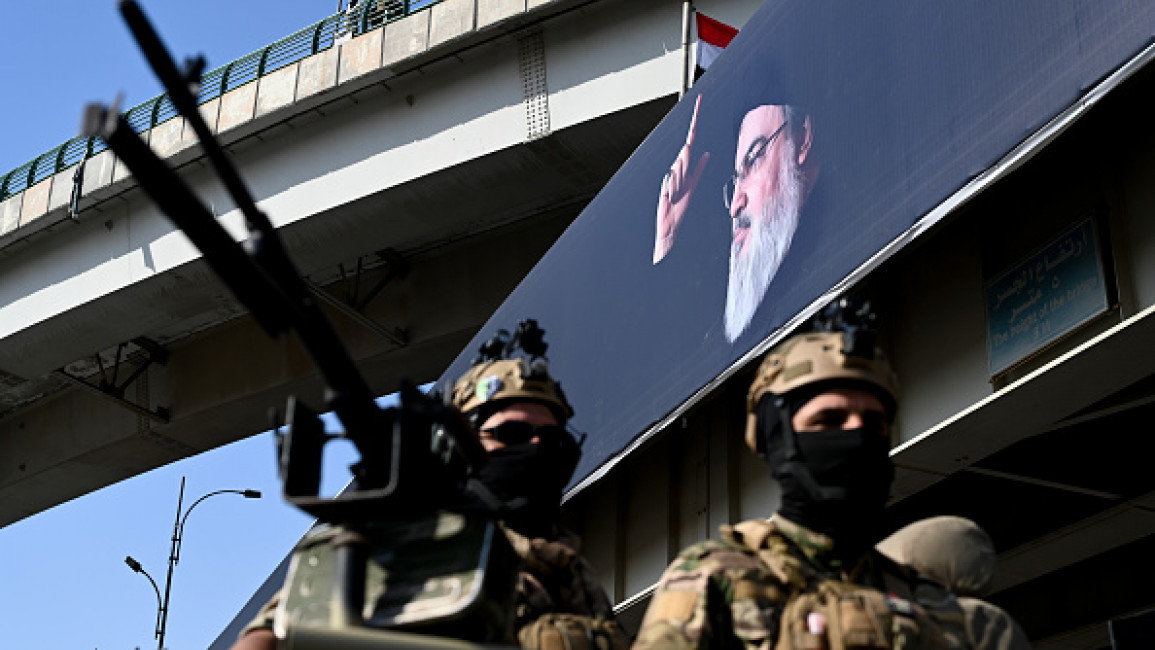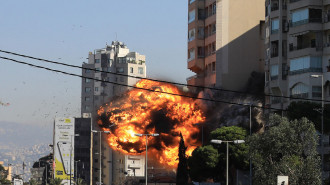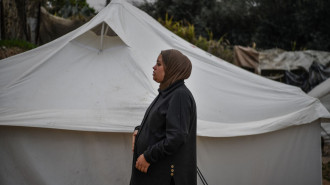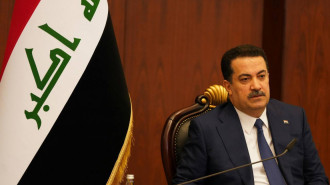Iraq on high alert in anticipation of Israeli attacks on Iran-backed militias
Tensions are spreading across the Middle East following the assassination of Hezbollah Secretary-General Hassan Nasrallah by Israeli forces in Beirut last Friday. The Iraqi army, alongside Iran-backed militias, is now on high alert as concerns grow that Israel may expand its military operations into Iraq.
A critical meeting is anticipated at the residence of Grand Shia cleric Ayatollah Ali Al-Sistani in Najaf, where Iraqi factions will gather to discuss how to manage the situation and potentially reduce tensions.
Sardar Abdullah, a Kurdish politician, commented on the broader implications of the recent developments, stating to The New Arab in an exclusive interview, "In a situation like this, it is normal for the Iraqi army [or the Iran-backed militias] to be on alert. But they should understand that Israel's cabinet has already prepared for a land invasion of southern Lebanon, and Netanyahu's government sees a golden opportunity to eliminate threats, particularly with only five weeks left until the US presidential elections."
According to Abdullah, Israel intends to pressure the Biden administration into fully supporting its actions. Should the US fail to back Israel, it could harm the Democratic Party's chances in the upcoming election, potentially opening the door for Donald Trump's return to the White House.
In Iraq, the stakes are high. Al-Sistani's meeting, which includes key leaders from various Iraqi militias, is seen as crucial. Abdullah emphasised that Al-Sistani has always prioritised the country's best interests. "His fatwa during the ISIS crisis calling for Jihad shows his ability to make tough decisions when Iraq's security is threatened. If this meeting proceeds, it could ease tensions, as the militias typically follow his guidance."
He also said no one can predict which Israel would target which infrastructure in Iraq and some information was leaked that indicated Israel had identified 38 targets in Iraq, and if the Iraqi government or Al-Sistani failed to stop the Iraqi militias from launching further attacks on Israel, then Israel would fiercely retaliate against the militias.
He stressed that Israel would try to drag Iran into a wider conflict, knowing that the Biden administration would back it and that would be an opportunity to attack Iran's atomic facilities or even activate ready-made plans for a regime change in Iran.
Meanwhile, security has been tightened around the US Embassy in Baghdad, amid fears of protests and unrest. Iraqi militias are weighing an escalation in their attacks on Israeli targets, but many see the U.S. as complicit in Israeli actions, raising the possibility of further military strikes against American interests in Iraq and the region.
Abdullah warned that direct conflict with Israel or the US could be catastrophic for Iraq. "Neither the Iraqi army nor the militias, nor Iran or its regional proxies, have the military strength to win such a war. Israel could devastate Iraq as it did Gaza and Lebanon."
He urged Iraqi leaders to act wisely and seek a united stance that avoids dragging the country into a destructive conflict while maintaining its strategic diplomatic role. "We need to ensure peace for Iraq without entangling ourselves in a war that would destroy us."
Recent security measures have also been strengthened in Basra, Iraq's southern port, amid concerns that it could be a target for Israeli strikes. Basra is a key oil export hub, and any attack on its infrastructure could cripple Iraq's economy.
On Sunday night, Iraqi MP Yasser Hashem Al-Husseini issued a dire warning to Prime Minister Mohammed Shia' al-Sudani, alerting him to the presence of over 4,000 tons of explosives in Basra's port, which, if attacked, could destroy the country's oil facilities and endanger millions of lives.
Al-Husseini accused the prime minister of negligence and threatened to publicly disclose further details if no action is taken.
While Abdullah believes an attack on Basra is unlikely due to Al-Sudani's close ties with the US, leaked intelligence suggests Israel has identified 38 potential targets within Iraq. If the Iraqi government or Al-Sistani cannot rein in militia attacks on Israel, the response could be devastating.
Iraqi factions are divided over whether to target US interests in their potential retaliation. Some leaders argue that attacking US assets could destabilise Al-Sudani's government and provoke a strong US response that might derail their operations against Israel. Others, however, insist that the US was a key player in Nasrallah's assassination and is complicit in the ongoing violence in Lebanon and Gaza, justifying an expanded campaign.
Ali Al-Fatlawi, a leader of the Ansar Allah Al-Awfiyaa movement, reaffirmed the commitment of Iraqi militias to continue their resistance against Israel.
"The resistance will not be abandoned, and our operations against Israel will increase in both scope and sophistication," Al-Fatlawi stated to Al-Araby Al-Jadeed, TNA's Arabic-language sister publication, adding that Iraqi militias are united in their support for Gaza and Lebanon. "We cannot let Gaza and Lebanon face Israel alone."
As Israeli airstrikes continue to target Lebanon, fears are growing that the conflict could spread throughout the region. Some analysts, including Abdullah, believe that Israel may be seeking to provoke a broader confrontation with Iran, potentially using this moment to strike Iran's nuclear facilities or initiate regime change. The current US political climate, particularly with the upcoming election, could further complicate the situation.







 Follow the Middle East's top stories in English at The New Arab on Google News
Follow the Middle East's top stories in English at The New Arab on Google News


